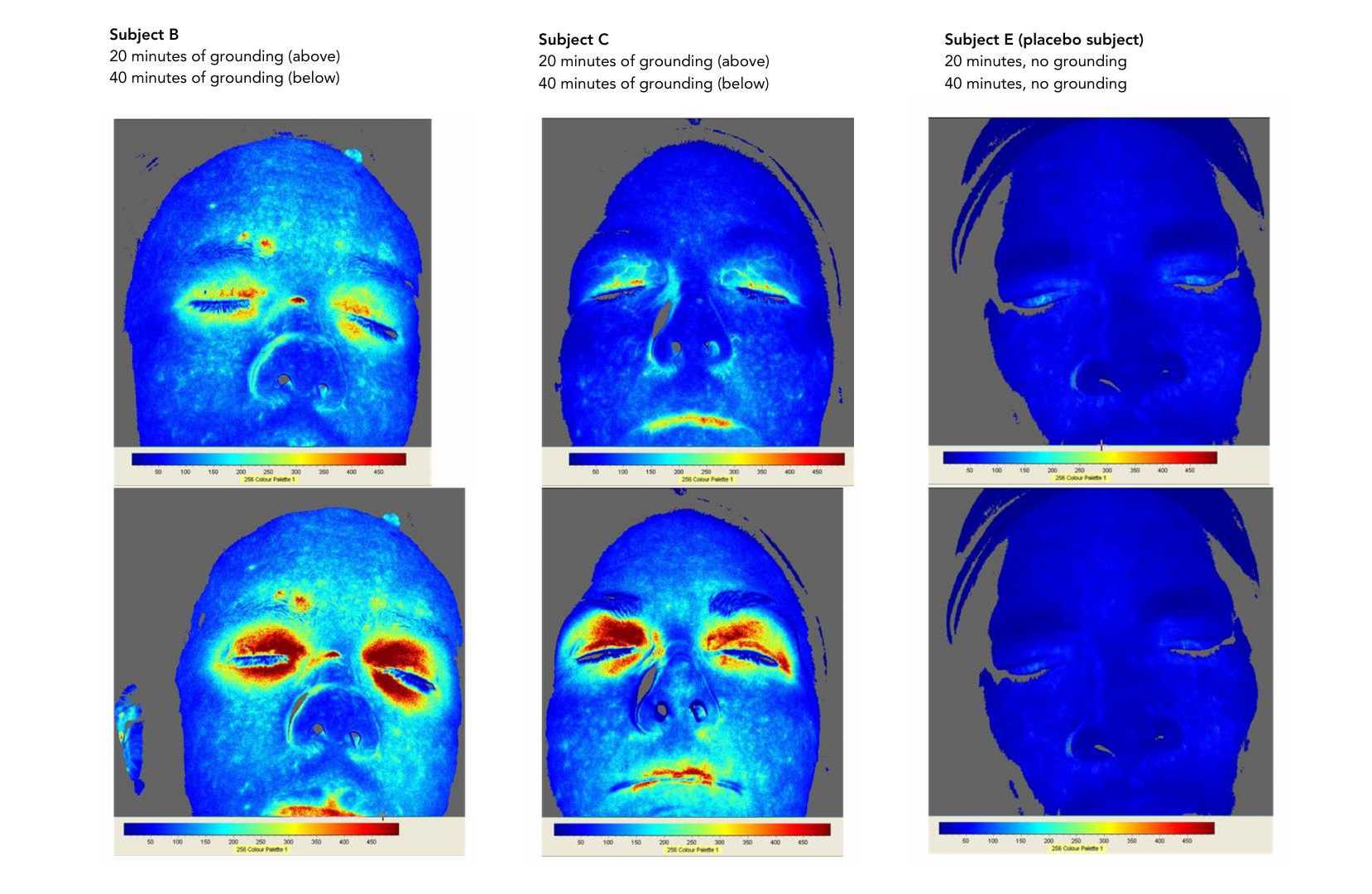Click here to view the original study published in the Journal of Cosmetics, Dermatological Sciences and Applications.
A groundbreaking study, designed to investigate the effects of grounding on facial blood flow (FBF), provides compelling evidence of its physiological impact. The study involved forty subjects, who were either grounded or sham-grounded for at least one hour in a comfortable recliner chair equipped with conductive materials. Using a Laser Speckle Contrast Imaging camera, researchers observed continuous changes in facial blood flow non-invasively. The results were striking: facial blood flow regulation improved significantly among grounded subjects, while no such improvement was observed in sham-grounded participants.


This finding marks the first empirical evidence that even short-term contact with the Earth's surface can enhance blood flow regulation to the face, potentially promoting skin tissue repair and overall facial appearance. The implications of this study extend beyond cosmetic concerns, suggesting broader implications for cardiovascular health and well-being.
To understand the mechanisms underlying these findings, it's essential to delve into the physiological processes influenced by grounding. One key mechanism involves the autonomic nervous system (ANS), which regulates various bodily functions, including blood flow dynamics. Grounding appears to support more efficient ANS regulation of FBF, leading to rhythmic fluctuations in blood flow and improved oxygen and nutrient delivery to the skin and other organs.
Furthermore, grounding may influence the zeta potential (ZP) and aggregation of red blood cells (RBCs), which play a crucial role in blood viscosity. Research suggests that grounding can enhance the negative electric charge on RBC membranes, reducing blood viscosity and improving overall circulation. This effect may have significant implications for individuals with conditions associated with elevated blood viscosity, such as hypertension and diabetes.
Additionally, grounding has been shown to modulate inflammatory responses, further contributing to its potential therapeutic effects on skin health. By neutralizing oxidative free radicals and activating the inflammatory reflex, grounding may help alleviate inflammation and promote tissue repair. This mechanism could have profound implications for individuals with inflammatory skin conditions, such as eczema and psoriasis, as well as for combating the signs of aging.
Moreover, grounding has been linked to stress reduction, another key factor in maintaining healthy skin. Chronic stress can disrupt cortisol levels and trigger inflammatory skin conditions, while grounding has been shown to restore normal cortisol patterns and promote balance in the autonomic nervous system. By mitigating the effects of stress, grounding may contribute to overall skin health and vitality.
While the findings of this study are promising, further research is needed to fully understand the therapeutic potential of grounding and its implications for human health. Larger-scale studies, longer monitoring periods, and additional measurement methods will help validate these initial findings and elucidate the underlying mechanisms at play.
In conclusion, the practice of grounding offers a simple yet powerful way to reconnect with the Earth's natural energy and promote health and well-being. From improving facial blood circulation to reducing inflammation and stress, grounding holds promise as a holistic approach to skin health and overall vitality. As we continue to explore the science behind earthing, we may uncover new insights into the profound ways in which our connection to the Earth influences our physical and emotional well-being.




